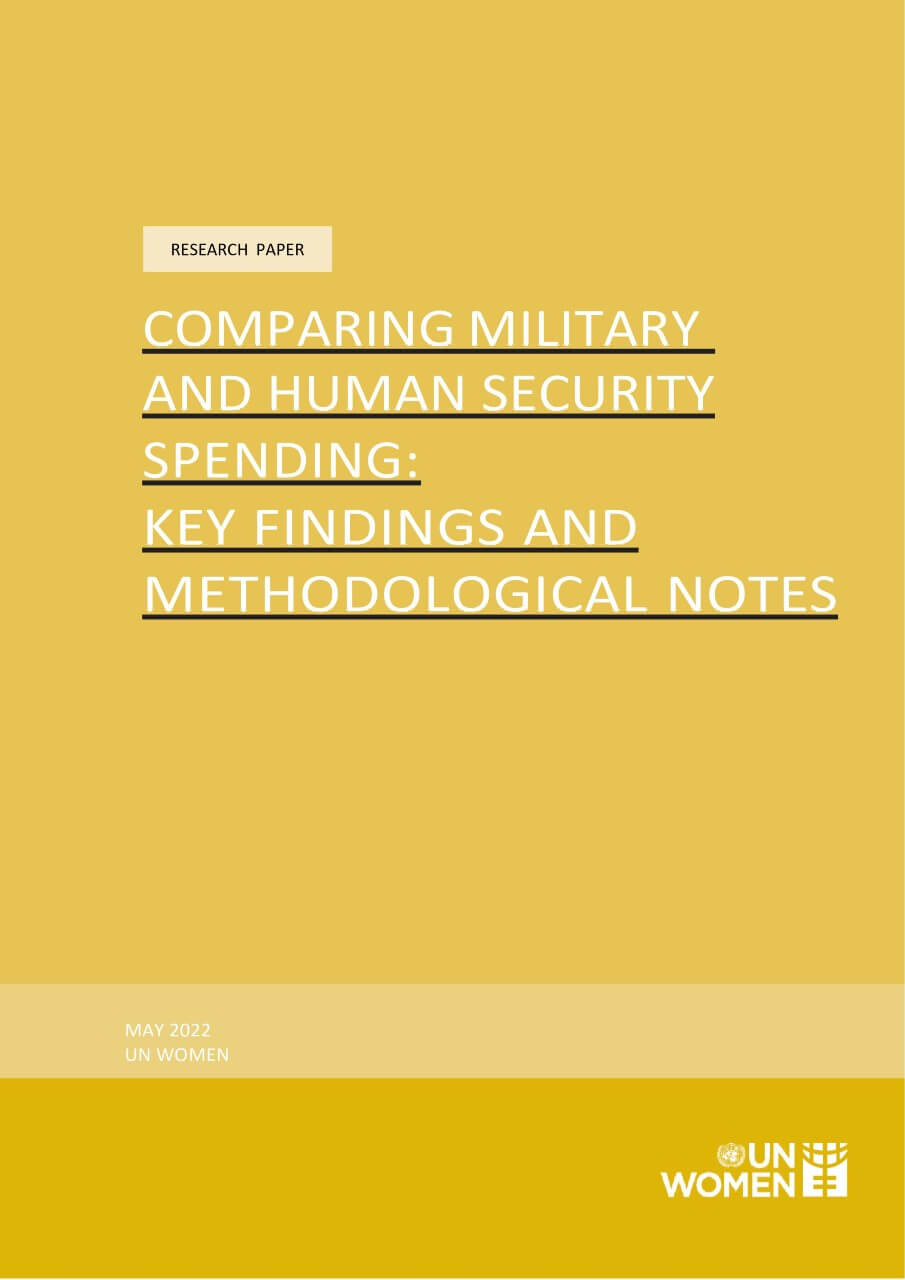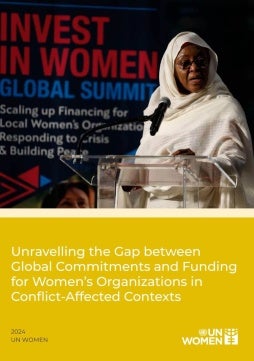Research on military expenditure and women, peace, and security
These papers are part of UN Women’s new research on military expenditure and women, peace, and security and was supported by the generous contribution from the Swedish International Development Cooperation Agency.
The research is composed of three papers:
- “The Impact of militarization on gender inequality” (by Dr. Adem Elveren) uses various panel regression methods to analyze the effects of different militarization indicators on gender inequality and female labour force participation rates for 1990–2019 in 153 countries. The findings suggest a clear association between militarization and gender inequality for different model specifications and robustness checks. The study also introduces a Kaleckian-feminist model to examine the effect of military spending on economic growth through gender inequality.
- “Comparing military and human security spending” (by Dr. Ruth Carlitz) leverages publicly available data to compare trends in government spending on the military with spending on human security (social protection, education, and health). It also examines whether military spending crowds out policy measures governments have taken in response to the COVID-19 pandemic.
- “Militarization and women's empowerment in post-conflict societies” (by Dr. Michelle Benson and Dr. Ismene Gizelis) examines under what circumstances post-conflict societies can avoid renewed militarization and potentially increase female empowerment and posits that the presence of UN peacekeeping operations can allow for decreased military spending due to its ability to mitigate violence in both conflict and post-conflict situations. It is expected that states with a UN presence should be more easily able to reduce their militarization levels than civil conflict states without UN peacekeeping. It is further posited that peacekeeping should facilitate a policy shift that allows for greater female empowerment.
Additional documents
Bibliographic information
Resource type(s):
Research papers
UN Women office publishing:
UN Women Headquarters Office
Number of pages
15
Publishing entities
United Nations Entity for Gender Equality and the Empowerment of Women (UN Women)










